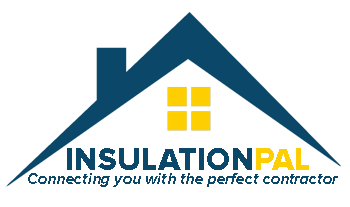Commercial Insulation: Definition and What it is
Insulation systems designed for commercial buildings, offices, and industrial facilities.
What is Commercial Insulation?
Commercial insulation encompasses specialized insulation systems designed for non-residential buildings including offices, warehouses, retail spaces, and industrial facilities. These systems must meet stricter fire codes, accommodate larger spaces, and often integrate with complex HVAC and mechanical systems.
Commercial buildings face unique insulation challenges: larger roof spans, metal construction, higher ceilings, and demanding energy codes. Commercial insulation must also address acoustic concerns in multi-tenant spaces, meet LEED or other green building standards, and provide long-term durability under heavy use. Installation often occurs during off-hours to minimize business disruption, and projects typically require bonding, insurance, and prevailing wage compliance.
Commercial Insulation Systems
- Spray Foam: Provides air sealing plus insulation for metal buildings and irregular spaces
- Mineral Wool: Fire-resistant, acoustic insulation for walls and fire-rated assemblies
- Rigid Foam Board: Continuous insulation for roofs, walls, and below-grade applications
- Fiberglass Batts: Cost-effective solution for stud wall cavities
- Blown-in Cellulose: Attic and cavity insulation for large areas
Commercial Insulation Best Practices
Commercial projects require thorough planning, specifications, and compliance with energy codes (ASHRAE 90.1, IECC Commercial). Continuous insulation is critical for reducing thermal bridging through metal framing. Fire ratings must meet local codes—often requiring Class A materials. Acoustic performance may be specified through STC and NRC ratings. Work with experienced commercial contractors who understand scheduling, safety protocols, and documentation requirements for inspections and certifications.
Benefits of Commercial Insulation
- Reduce operating costs through lower heating and cooling expenses
- Meet or exceed energy code requirements (ASHRAE, IECC)
- Qualify for utility rebates and tax incentives
- Improve tenant comfort and satisfaction
- Achieve LEED or green building certifications
- Reduce HVAC equipment size and capital costs
- Enhance building value and marketability
Commercial Insulation Cost
Commercial insulation costs vary widely based on building type, project scale, and performance requirements.
- Project scale (larger projects benefit from economies of scale)
- Building type (warehouse vs. office vs. industrial)
- Energy code requirements and performance targets
- Fire rating and acoustic specifications
- Access and scheduling constraints (occupied buildings cost more)
- Prevailing wage requirements for public projects
- Typical range: $2-$6 per square foot installed depending on system
How InsulationPal Can Help You
InsulationPal connects you with licensed, experienced insulation contractors. Compare multiple quotes to get the best value for your project.
Free Quotes: Get multiple competitive quotes from pre-screened contractors.
Expert Matching: We match you with pros experienced in commercial insulation.
Quality Assurance: Licensed, insured, and verified contractors.
Related Services and Resources
Explore all services we offer
Expert guides and tips on insulation
